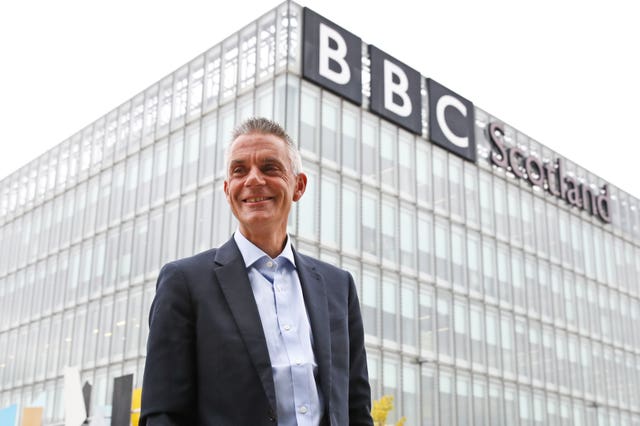Former Goldman Sachs banker Richard Sharp will succeed Sir David Clementi as BBC chairman, BBC News has said.
His appointment comes amid a debate about the BBC licence fee and how the broadcaster is facing competition from streaming services.
Mr Sharp, who was once Chancellor Rishi Sunak’s boss, will take over from Sir David, who will stand down in February, according to BBC media editor Amol Rajan.
Names previously linked with the post include former chancellor George Osborne and ex-editor of the Daily Telegraph Charles Moore, who reportedly ruled himself out.

The new chairman will work closely with new director-general Tim Davie, who is the former chief executive of the BBC’s commercial arm, BBC Studios.
He took over from Lord Tony Hall in September and said the corporation needs to keep reforming “with urgency” and stressed it must be “a universal public service”.
The broadcaster currently faces scrutiny over equal pay, diversity, free TV licences for the over-75s and competition from streaming services such as Netflix, as well as the ongoing coronavirus crisis.
Julian Knight, chair of the Digital, Culture, Media and Sport Committee (DCMS), commented on the reports of Sharp’s appointment.
He said: “It is disappointing to see this news about the next BBC chairman has leaked out ahead of a formal announcement from the Department of Digital, Culture, Media and Sport.
“The committee previously expressed some concerns over the appointments process, calling for it to be fair and transparent.
“The DCMS committee looks forward to questioning the preferred candidate for the post in a pre-appointment hearing next week on their views at a critical time for the BBC about its role and the future of public service broadcasting more generally.”
Culture Secretary Oliver Dowden told Sky News’s Sophy Ridge On Sunday late last year that the Government wanted a “strong, big person who can hold the BBC to account” to be the broadcaster’s next chairman.
Sharp has not yet commented on the appointment, which would see him earn a salary of £160,000 for “three/four days a week”.
According to the job description posted online last year, the BBC board “meets at least 11 times a year”.





Why are you making commenting on The National only available to subscribers?
We know there are thousands of National readers who want to debate, argue and go back and forth in the comments section of our stories. We’ve got the most informed readers in Scotland, asking each other the big questions about the future of our country.
Unfortunately, though, these important debates are being spoiled by a vocal minority of trolls who aren’t really interested in the issues, try to derail the conversations, register under fake names, and post vile abuse.
So that’s why we’ve decided to make the ability to comment only available to our paying subscribers. That way, all the trolls who post abuse on our website will have to pay if they want to join the debate – and risk a permanent ban from the account that they subscribe with.
The conversation will go back to what it should be about – people who care passionately about the issues, but disagree constructively on what we should do about them. Let’s get that debate started!
Callum Baird, Editor of The National
Comments: Our rules
We want our comments to be a lively and valuable part of our community - a place where readers can debate and engage with the most important local issues. The ability to comment on our stories is a privilege, not a right, however, and that privilege may be withdrawn if it is abused or misused.
Please report any comments that break our rules.
Read the rules here